Analyzing Generational Differences and Management Strategies
VerifiedAdded on 2022/09/16
|5
|896
|39
Report
AI Summary
This report examines the challenges and opportunities presented by generational differences in the workplace. It highlights the communication disparities between Millennials and Baby Boomers, emphasizing the need for managers to adapt their communication styles to bridge these gaps. The analysis explores the varying skill sets, personalities, and communication preferences of different generations, advocating for flexible management approaches. The report discusses strategies such as style typing, training, and knowledge transfer to foster understanding and collaboration. It also addresses the individualistic tendencies of Generation X and the importance of assigning the right tasks to the right individuals. The conclusion emphasizes the need for dynamic managers who encourage inclusion, address age-related discrimination, and lead teams effectively to enhance overall organizational culture and productivity. The report draws upon various research sources to support its findings and recommendations.
1 out of 5
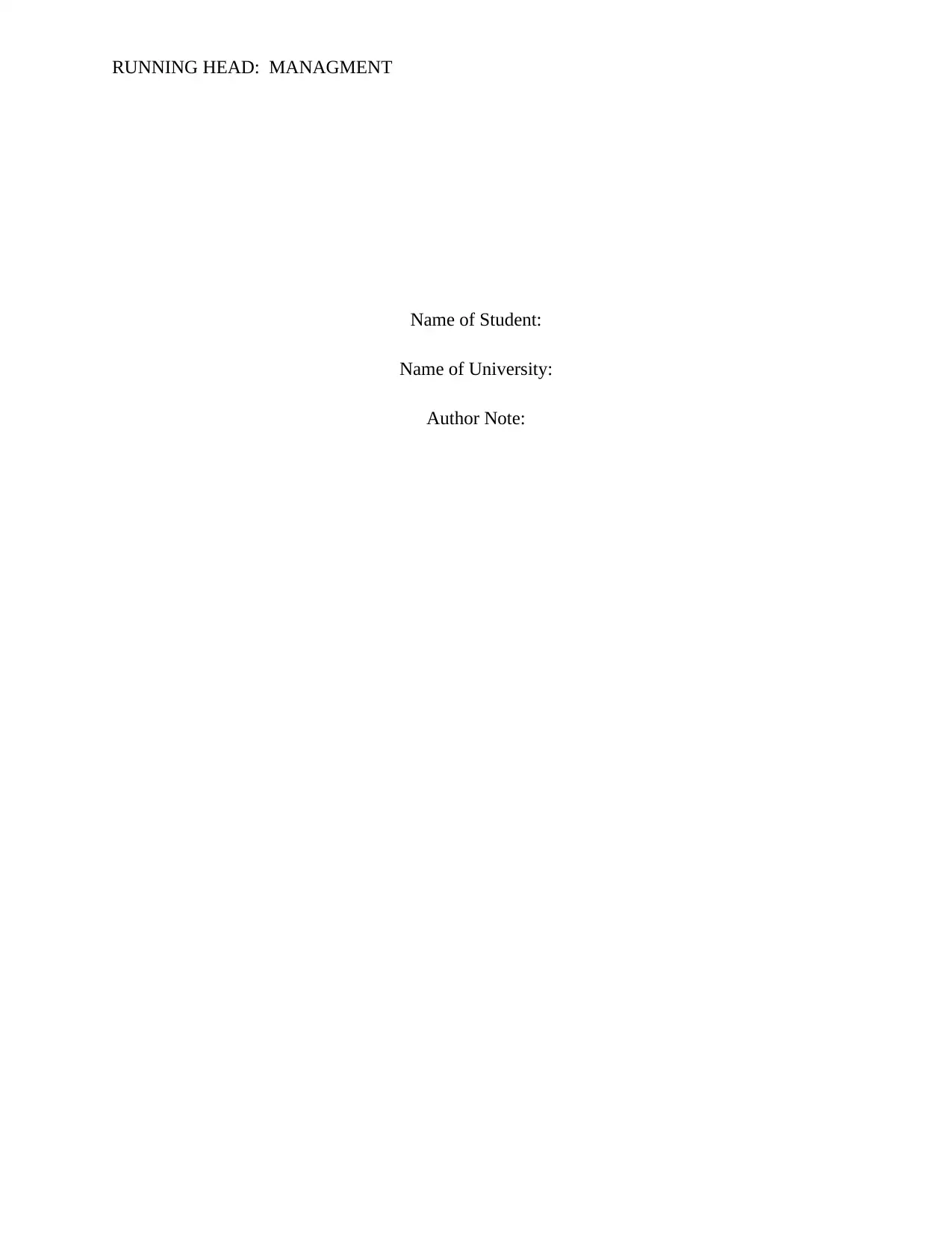
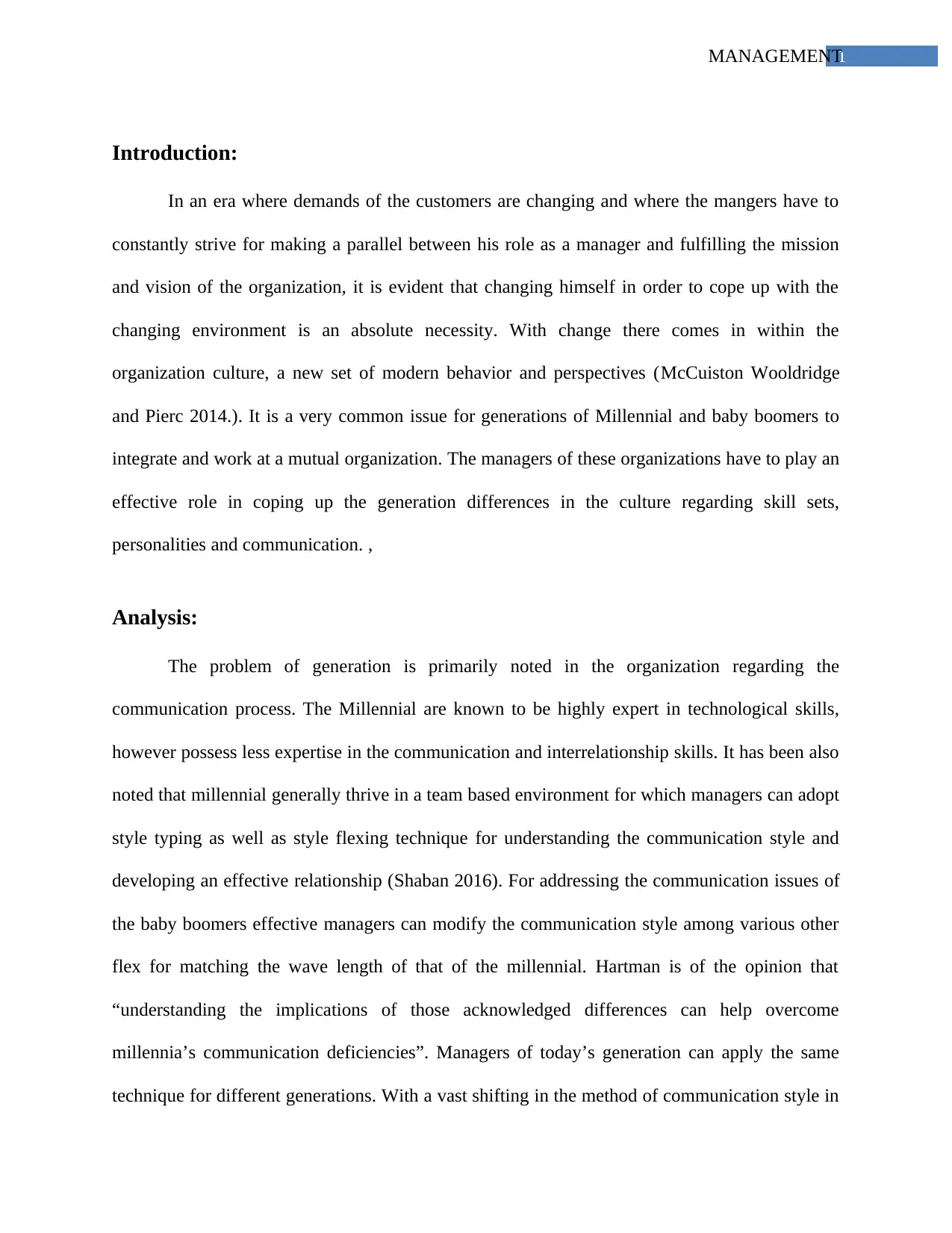
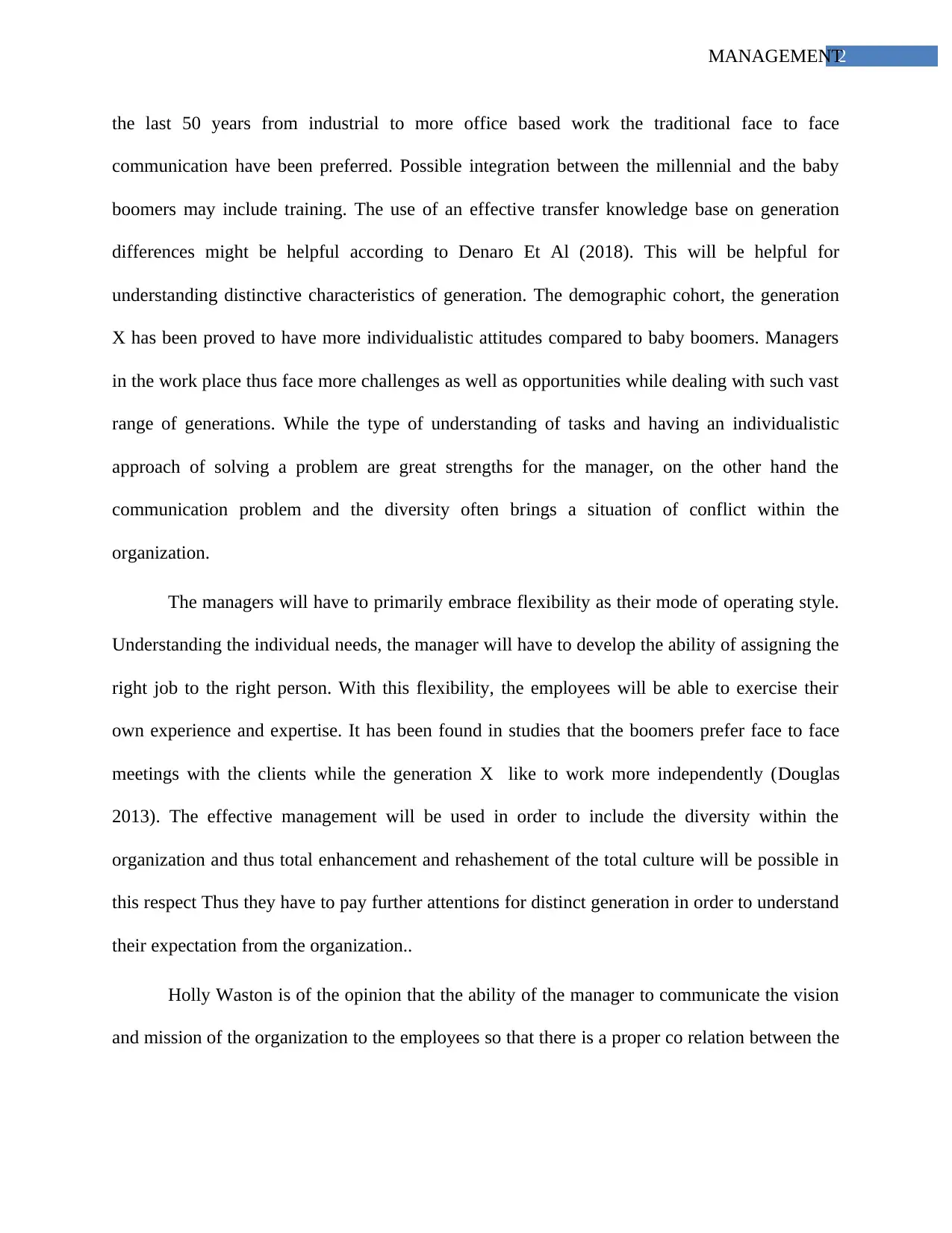

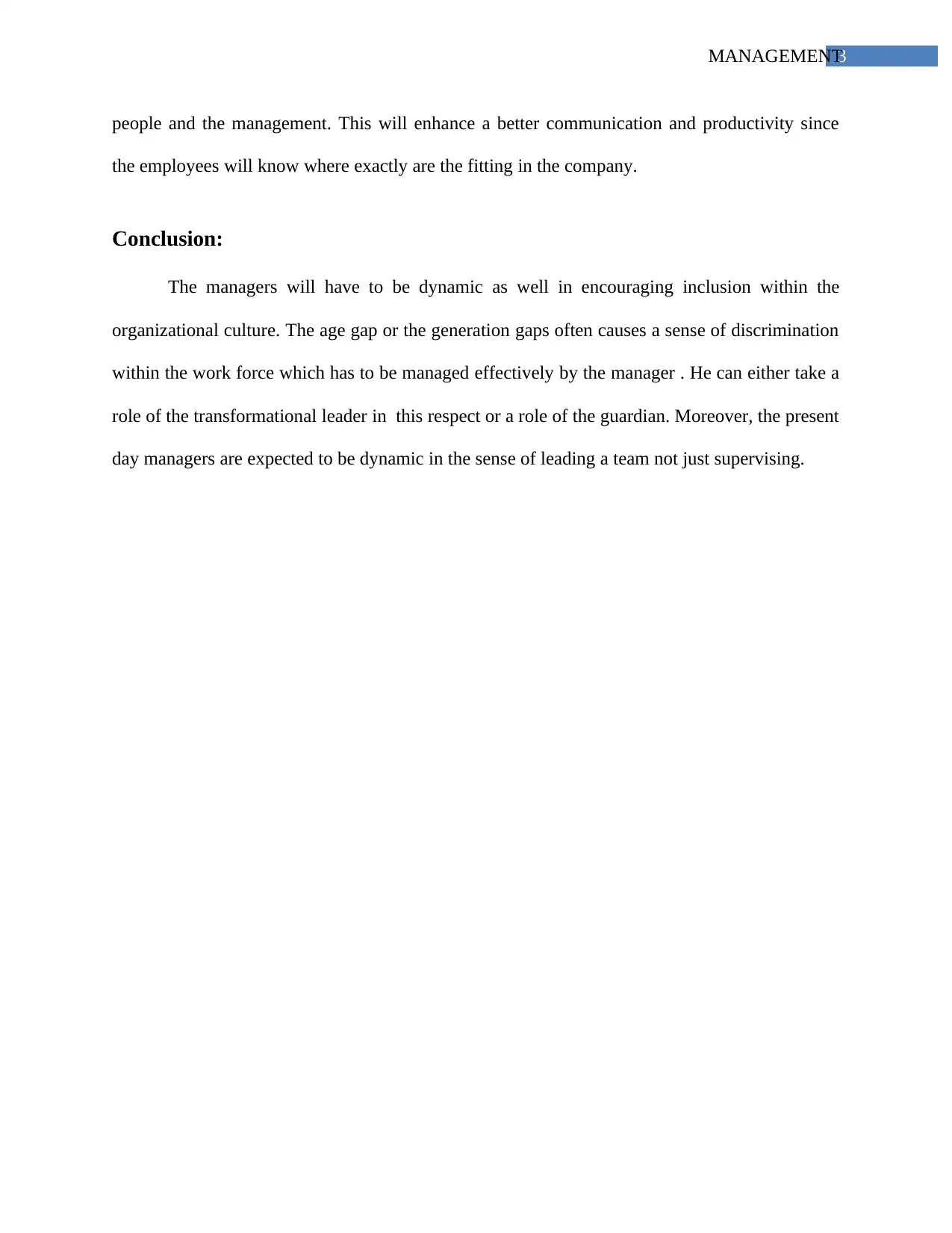
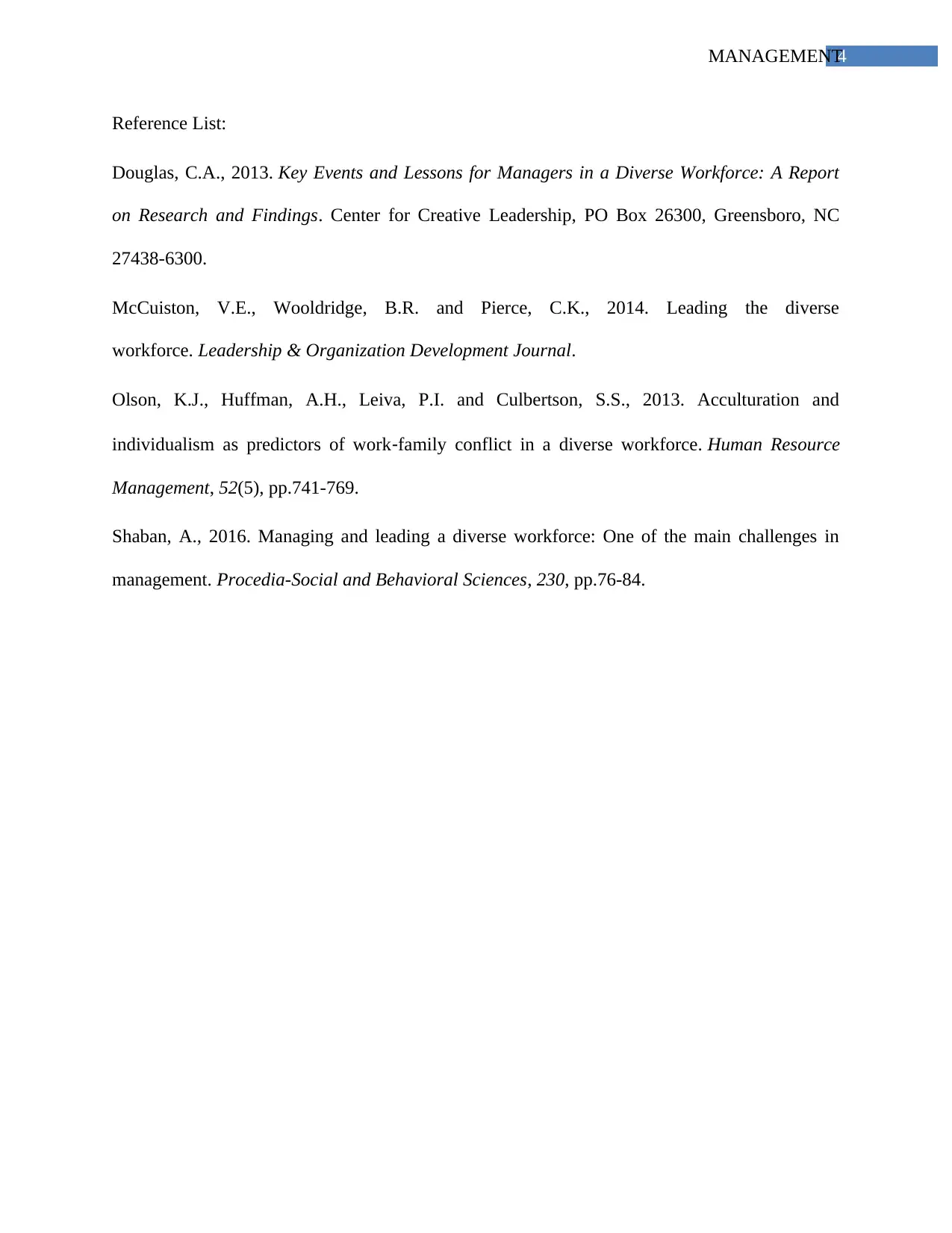






![[object Object]](/_next/static/media/star-bottom.7253800d.svg)